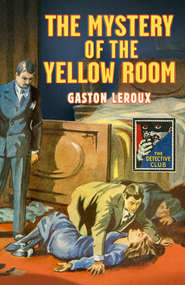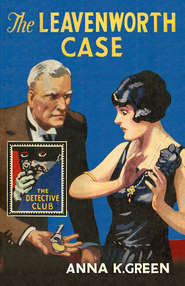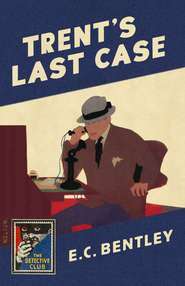По всем вопросам обращайтесь на: info@litportal.ru
(©) 2003-2024.
✖
The Pit-Prop Syndicate
Автор
Год написания книги
2019
Настройки чтения
Размер шрифта
Высота строк
Поля
The driver had come out of the shed, the same dark, aquiline featured man as had passed him on the bridge. He had stopped and was staring at Merriman with an intense regard in which doubt and suspicion rapidly changed to hostility. For the moment neither man moved, and then once again the girl’s voice broke in.
‘Oh, there is father,’ she cried, with barely disguised relief in her tones. ‘Come, won’t you, and speak to him.’
The interruption broke the spell. The driver averted his eyes and stooped over his engine; Merriman turned towards the girl, and the little incident was over.
It was evident to Merriman that he had in some way put his foot in it, how he could not imagine, unless there was really something in the matter of the number plate. But it was equally clear to him that his companion wished to ignore the affair, and he therefore expelled it from his mind for the moment, and, once again following the direction of her gaze, moved towards a man who was approaching from the far end of the shed.
He was tall and slender like his daughter, and walked with lithe, slightly feline movements. His face was oval, clear skinned, and with a pallid complexion made still paler by his dark hair and eyes and a tiny moustache, almost black and with waxed and pointed ends. He was good-looking as to features, but the face was weak and the expression a trifle shifty.
His daughter greeted him, still with some perturbation in her manner.
‘We were just looking for you, daddy,’ she called a little breathlessly. ‘This gentleman is cycling to Bordeaux and has run out of petrol. He asked me if there was any to be had hereabouts, so I told him you could give him some.’
The newcomer honoured Merriman with a rapid though searching and suspicious glance, but he replied politely, and in a cultured voice:
‘Quite right, my dear.’ He turned to Merriman and spoke in French. ‘I shall be very pleased to supply you, monsieur. How much do you want?’
‘Thanks awfully, sir,’ Merriman answered in his own language. ‘I’m English. It’s very good of you, I’m sure, and I’m sorry to be giving so much trouble. A litre should run me to Bordeaux, or say a little more in case of accidents.’
‘I’ll give you two litres. It’s no trouble at all.’ He turned and spoke in rapid French to the driver.
‘Oui, monsieur,’ the man replied, and then, stepping up to his chief, he said something in a low voice. The other started slightly, for a moment looked concerned, then instantly recovering himself, advanced to Merriman.
‘Henri, here, will send a man with a two litre can to where you left your machine,’ he said, then continued with a suave smile:
‘And so, sir, you’re English? It is not often that we have the pleasure of meeting a fellow-countryman in these wilds.’
‘I suppose not, sir, but I can assure you your pleasure and surprise is as nothing to mine. You are not only a fellow-countryman but a friend in need as well.’
‘My dear sir, I know what it is to run out of spirit. And I suppose there is no place in the whole of France where you might go farther without finding any than this very district. You are on pleasure bent, I presume?’
Merriman shook his head.
‘Unfortunately, no,’ he replied. ‘I’m travelling for my firm, Edwards & Merriman, Wine Merchants of London. I’m Merriman, Seymour Merriman, and I’m going round the exporters with whom we deal.’
‘A pleasant way to do it, Mr Merriman. My name is Coburn, You see, I am trying to change the face of the country here?’
‘Yes, Miss’—Merriman hesitated for a moment and looked at the girl—‘Miss Coburn told me what you were doing. A splendid notion, I think.’
‘Yes, I think we’re going to make it pay very well. I suppose you’re not making a long stay?’
‘Two days in Bordeaux, sir, then I’m off east to Avignon.’
‘Do you know, I rather envy you. One gets tired of these tree trunks and the noise of the saws. Ah, there is your petrol.’ A workman had appeared with a red can of Shell. ‘Well, Mr Merriman, a pleasant journey to you. You will excuse my not going farther with you, but I am really supposed to be busy.’ He turned to his daughter with a smile. ‘You, Madeleine, can see Mr Merriman to the road?’
He shook hands, declined Merriman’s request to be allowed to pay for the petrol and, cutting short the other’s thanks with a wave of his arm, turned back to the shed.
The two young people strolled slowly back across the clearing, the girl evidently disposed to make the most of the unwonted companionship, and Merriman no less ready to prolong so delightful an interview. But in spite of the pleasure of their conversation, he could not banish from his mind the little incident which had taken place, and he determined to ask a discreet question or two about it.
‘I say,’ he said, during a pause in their talk, ‘I’m afraid I upset your lorry man somehow. Did you notice the way he looked at me?’
The girl’s manner, which up to this had been easy and careless, changed suddenly, becoming constrained and a trifle self-conscious. But she answered readily enough.
‘Yes, I saw it. But you must not mind Henri. He was badly shell-shocked, you know, and he has never been the same since.’
‘Oh, I’m sorry,’ Merriman apologised, wondering if the man could be a relative. ‘Both my brothers were hit the same way. They were pretty bad, but they’re coming all right. It’s generally a question of time, I think.’
‘I hope so,’ Miss Coburn rejoined, and quietly but decisively changed the subject.
They began to compare notes about London, and Merriman was sorry when, having filled his tank and pushed his bicycle to the road, he could no longer with decency find an excuse for remaining in her company. He bade her a regretful farewell, and some half-hour later was mounting the steps of his hotel in Bordeaux.
That evening, and many times later, his mind reverted to the incident of the lorry. At the time she made it, Miss Coburn’s statement about the shell-shock had seemed entirely to account for the action of Henri, the driver. But now Merriman was not so sure. The more he thought over the affair, the more certain he felt that he had not made a mistake about the number plate, and the more likely it appeared that the driver had guessed what he, Merriman, had noticed, and resented it. It seemed to him that there was here some secret which the man was afraid might become known, and Merriman could not but admit to himself that all Miss Coburn’s actions were consistent with the hypothesis that she also shared that secret and that fear.
And yet the idea was grotesque that there could be anything serious in the altering of the number plate of a motor lorry, assuming that he was not mistaken. Even if the thing had been done, it was a trivial matter and, so far as he could see, the motives for it, as well as its consequences, must be trivial. It was intriguing, but no one could imagine it to be important. As Merriman cycled eastward through France his interest in the affair gradually waned, and when, a fortnight later, he reached England, he had ceased to give it a serious thought.
But the image of Miss Coburn did not so quickly vanish from his imagination, and many times he regretted he had not taken an opportunity of returning to the mill to renew the acquaintanceship so unexpectedly begun.
CHAPTER II (#ulink_e507163c-238e-5c56-9e0e-bb0f8054e7c5)
AN INTERESTING SUGGESTION
ABOUT ten o’clock on a fine evening towards the end of June, some six weeks after the incident described in the last chapter, Merriman formed one of a group of young men seated round the open window of the smoking room in the Rovers’ Club in Cranbourne Street. They had dined together, and were enjoying a slack hour and a little desultory conversation before moving on, some to catch trains to the suburbs, some to their chambers in town, and others to round off the evening with some livelier form of amusement. The Rovers had premises on the fourth floor of a large building near the Hippodrome. Its membership consisted principally of business and professional men, but there was also a sprinkling of members of Parliament, political secretaries and minor government officials, who, though its position was not ideal, were attracted to it because of the moderation of its subscription and the excellence of its cuisine.
The evening was calm, and the sounds from the street below seemed to float up lazily to the little group in the open window, as the smoke of their pipes and cigars floated up lazily towards the ceiling above. The gentle hum of the traffic made a pleasant accompaniment to their conversation, as the holding down of a soft pedal fills in and supports dreamy organ music. But for the six young men in the bow window the room was untenanted, save for a waiter who had just brought some fresh drinks, and who was now clearing away empty glasses from an adjoining table.
The talk had turned on foreign travel, and more than one member had related experiences which he had undergone while abroad. Merriman was tired and had been rather silent, but it was suddenly borne in on him that it was his duty, as one of the hosts of the evening, to contribute somewhat more fully towards the conversation. He determined to relate his little adventure at the saw-mill of the Pit-Prop Syndicate. He therefore lit a fresh cigar, settled himself more comfortably in his chair, and began to speak.
‘Any of you fellows know the country just south of Bordeaux?’ he asked, and, as no one responded, he went on: ‘I know it a bit, for I have to go through it every year on my trip round the wine exporters. This year a rather queer thing happened when I was about half an hour’s run from Bordeaux; absolutely a trivial thing and of no importance, you understand, but it puzzled me. Maybe some of you could throw some light on it?’
‘Proceed, my dear sir, with your trivial narrative,’ invited Jelfs, a man sitting at one end of the group. ‘We shall give it the weighty consideration which it doubtless deserves.’
Jelfs was a stockbroker and the professional wit of the party. He was a good soul, but boring. Merriman took no notice of the interruption.
‘It was between five and six in the evening,’ he went on, and he told in some detail of his day’s run, culminating in his visit to the sawmill and his discovery of the alteration in the number of the lorry. He gave the facts exactly as they had occurred, with the single exception that he made no mention of his meeting with Madeleine Coburn.
‘And what happened?’ asked Drake, another of the men, when he had finished.
‘Nothing more happened,’ Merriman returned. ‘The manager came and gave me some petrol, and I cleared out. The point is, why should that number plate have been changed?’
Jelfs fixed his eyes on the speaker, and gave the little sidelong nod which indicated to the others that another joke was about to be perpetrated.
‘You say,’ he asked impressively, ‘that the lorry was at first 4 and then 3. Are you sure you haven’t made a mistake of 41?’
‘How do you mean?’
‘I mean that it’s a common enough phenomenon for a No. 4 lorry to change, after lunch, let us say, into No. 44. Are you sure it wasn’t 44?’
Merriman joined in the laugh against him.










